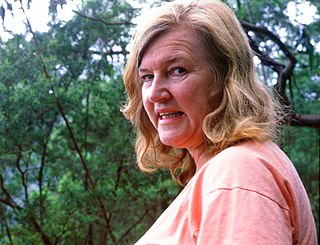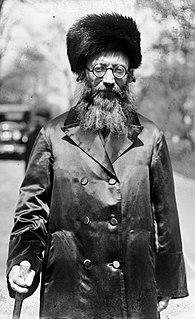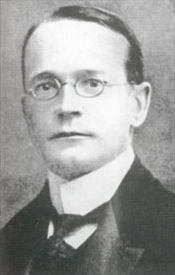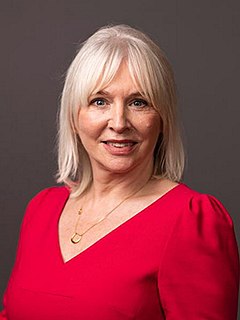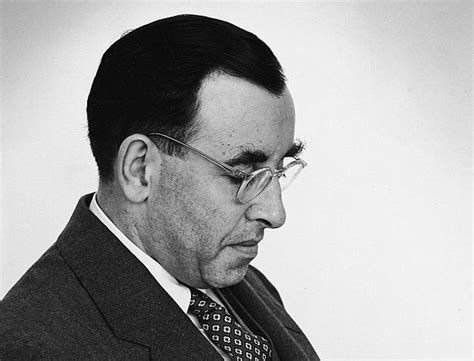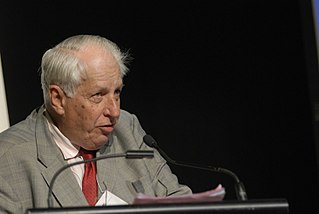Top 1068 Ethical Quotes & Sayings - Page 18
Explore popular Ethical quotes.
Last updated on April 16, 2025.
[W]omen's magazines know that more than two thirds of women pray each day so they tend to promote "spirituality" which is warm, soft, fuzzy, and "me-centered, " rather than religion, which is definitely not. Shot with a soft-focus lens, spirituality in women's media has morphed into another method of stress reduction. Lulling and inoffensive, spirituality is more about taking long walks and buying $65 Jo Malone scented candles than making ethical decisions or moral judgments. It's another way to calm ourselves, refresh ourselves, or applaud ourselves.
Broader and deeper we must write our annals, from an ethical reformation, from an influx of the ever new, ever sanative conscience, if we would trulier express our central and wide-related nature, instead of this old chronology of selfishness and pride to which we have too long lent our eyes. Already that day exists for us, shines in on us at unawares, but the path of science and of letters is not the way into nature. The idiot, the Indian, the child, and unschooled farmer's boy, stand nearer to the light by which nature is to be read, than the dissector or the antiquary.
I think it's really easy for people to point out hypocrisy in people's lives. It's like yeah, I get on planes a lot, and I drank from a plastic water bottle today - you know what I'm saying? A lot of people would just be like, "Oh, you're a hypocrite. You live in an ecovillage for a month, and then you fly around the world to talk about a movie." Don't think that I don't think about those things! Don't think that that's not, like, a quandary in my life. It can be a pretty intense ethical dilemma. I think it's about figuring out, you know, navigating life.
We all faced painful ethical challenges before we even knew how to spell our names. There were tough choices. Tradeoffs. Confusing signals regarding how to live one's life. And here we are now, today, still struggling. Still trying to sort things out. Still trying to work our way through life effectively. About the only thing that has changed is the scope of the problem. There's more at stake now. And we're in a position, as grownups, to do a lot more-good or bad-for ourselves, our organization, our world. But we still must wrestle with our imperfect ethics.
Ours is a world of nuclear giants and ethical infants. We know more about war than we know about peace, more about killing than we know about living. The way to win an atomic war is to make certain it never starts. And the way to make sure it never starts is to abolish the dangerous costly nuclear stockpiles which imprison mankind.
I think there are three types of actors. There are the ones that do the ego thing, which is "I'm never going to look bad in a movie, ever." This is mostly the action film dudes, like, "Nah, hell no. He ain't punchin' me! I'd whoop his ass!" Then you've got the activist type who bases their decisions in the development of a character on what it symbolizes to society - what the ethical code is. And then the third type is a true thespian who doesn't give a flying rat's ass what it is as long as it's deep, powerful, and painful, and they will dive in headfirst. I really respect those people.
The moral problem of abortion is of a pre religious nature because the genetic code is written in a person at the moment of conception. A human being is there. I separate the topic of abortion from any specifically religious notions. It is a scientific problem. Not to allow the further development of a being which already has all the genetic code of a human being is not ethical. The right to life is the first among human rights. To abort a child is to kill someone who cannot defend himself.
It's silly to have as one's sole object in life just making money, accumulating wealth. I work because I enjoy what I'm doing, and the fact that I make money at it - big money - is a fine-and-dandy side fact. Money gives me just one big thing that's really important, and that's the freedom of not having to worry about money. I'm concerned about values - moral, ethical, human values - my own, other people's, the country's, the world's values. Having money now gives me the freedom to worry about the things that really matter.
To the extent that we hyper-separate ourselves from nature and reduce it conceptually in order to justify domination, we not only lose the ability to empathise and to see the non-human sphere in ethical terms, but also get a false sense of our own character and location that includes an illusory sense of autonomy. The failure to see the non-human domain in the richer terms appropriate to ethics licences supposedly ‘purely instrumental’ relationships that distort our perceptions and enframings, impoverish our relations and make us insensitive to dependencies and interconnections
If the world is an aggregate of relatively independent regions, then any assumption of universal laws is false and a demand for universal norms tyrannical: only brute force (or seductive deception) can then bend the different moralities so that they fit the prescriptions of a single ethical system. And indeed, the idea of universal laws of nature and society arose in connection with a life-and-death battle: the battle that gave Zeus the power over the Titans and all other gods and thus turned his laws into the laws of the universe.
Rational thinking which is free from assumptions ends therefore in mysticism. To relate oneself in the spirit of reverence for life to the multiform manifestations of the will-to-live which together constitute the world is ethical mysticism. All profound world-view is mysticism, the essence of which is just this: that out of my unsophisticated and naïve existence in the world there comes, as a result of thought about self and the world, spiritual self-devotion to the mysterious infinite Will which is continuously manifested in the universe.
In contemporary society secular humanism has been singled out by critics and proponents alike as a position sharply distinguishable from any religious formulation. Religious fundamentalists in the United States have waged a campaign against secular humanism, claiming that it is a rival "religion" and seeking to root it out from American public life. Secular humanism is avowedly non-religious. It is a eupraxsophy (good practical wisdom), which draws its basic principles and ethical values from science, ethics, and philosophy.
Are we going to continue to yield personal liberties and community autonomy to the steady inexplicable centralization all political power or restore the Republic to Constitutional direction, regain our personal liberties and reassume the individual state's primary responsibility and authority in the conduct of local affairs? Are we going to permit a continuing decline in public and private morality or re-establish high ethical standards as the means of regaining a diminishing faith in the integrity of our public and private institutions?
It seems to me that the idea of a personal God is an anthropological concept which I cannot take seriously. I also cannot imagine some will or goal outside the human sphere... Science has been charged with undermining morality, but the charge is unjust. A man's ethical behavior should be based effectually on sympathy, education, and social ties and needs; no religious basis is necessary. Man would indeed be in a poor way if he had to be restrained by fear of punishment and hope of reward after death.
Old Testament Israel had some foundational pillars of faith. They were true and robust and God given. The trouble was that people had come to trust in them merely by repeating them, without paying any attention to the ethical implications of what their faith should mean in how they lived. They believed God had given them their land. He had. But they had not lived in it in either gratitude or obedience. They had not fulfilled any of the conditions that Deuteronomy had made so clear.
The delight of the Torah is ignited by an inner awareness. A man begins to sense the great tapestry of each letter and point. Every concept and content, every notion and idea, of every spiritual movement, of every vibration, intellectual and emotional, from the immediate and general to the distant and detailed, from matters lofty, spiritual, and ethical according to their outward profile, to matters practical, obligatory, seemingly frightening, and forceful, and at the same time complex and full of content and great mental exertion - all together become known by a supernal holy awareness.
In my path, three things are really important. One is associating with people who inspire us with their positive influence. The company we keep is very important. Number two is our spiritual practice. Putting aside sacred time every day to make that journey within, to tune into the frequency of our true nature and the love and the grace that is within us. Number three is to try living with ethical, moral and spiritual values, which culminates in unselfish service.
Spinoza , for example, thought that insight into the essence of reality, into the harmonious structure of the eternal universe, necessarily awakens love for this universe. For him, ethical conduct is entirely determined by such insight into nature, just as our devotion to a person may be determined by insight into his greatness or genius. Fears and petty passions, alien to the great love of the universe, which is logos itself, will vanish, according to Spinoza, once our understanding of reality is deep enough.
Nothing in Chomsky's account acknowledges the difference between intending to kill a child, because of the effect you hope to produce on its parents (we call this “terrorism”), and inadvertently killing a child in an attempt to capture or kill an avowed child murderer (we call this “collateral damage”). In both cases a child has died, and in both cases it is a tragedy. But the ethical status of the perpetrators, be they individuals or states, could not be more distinct For Chomsky, intentions do not seem to matter. Body count is all.
The adolescent frequently supposes that she is breaking out of the confines of her mundane, schoolgirl existence simply in order to break rules and defy authority. . . . She rids herself of the "oughts" and "musts" that convert every minor infraction into a sin of omission or commission. It certainly does not occur to her or to her family that by questioning the moral standards she erected as a child she is taking the first steps in her journey toward a firmer, more reasonable, less harsh, more ethical form of conscience.
True myths may serve for thousands of years as an inexhaustible source of intellectual speculation, religious joy, ethical inquiry, and artistic renewal. The real mystery is not destroyed by reason. The fake one is. You look at it and it vanishes. You look at the Blonde Hero-really look-and he turns into a gerbil. But you look at Apollo, and he looks back at you. The poet Rilke looked at a statue of Apollo about fifty years ago, and Apollo spoke to him. "You must change your life," he said. When the true myth rises into consciousness, that is always its message. You must change your life.
People knew there were two ways of coming at truth. One was science, or what the Greeks called Logos, reason, logic. And that was essential that the discourse of science or logic related directed to the external world. The other was mythos, what the Greeks called myth, which didn't mean a fantasy story, but it was a narrative associated with ritual and ethical practice but it helped us to address problems for which there were no easy answers, like mortality, cruelty, the sorrow that overtakes us all that's part of the human condition. And these two were not in opposition, we needed both.
The legal system doesn't always serve as a good guide for your conscience. You can step way over the ethical line and still be inside the law. The same thing goes for rules, policies and procedures - you know, the organization's "internal laws." You can "go by the book" and still behave unethically. Still not move beyond mediocrity. High standards-the ethics of excellence-come to life through your basic values, your character, integrity and honesty. Obeying the law is the bare minimum.
Thought cannot avoid the ethical or reverence and love for all life. It will abandon the old confined systems of ethics and be forced to recognize the ethics that knows no bounds. But on the other hand, those who believe in love for all creation must realize clearly the difficulties involved in the problem of a boundless ethic and must be resolved not to veil from humankind the conflicts which this ethic will involve us, but allow us really to experience them. To think out in every implication the ethic of love for all creation this is the difficult task which confronts our age.
The overriding need is "to develop a new Planetary Humanism" that will seek to preserve human rights and enhance human freedom and dignity and will emphasize our commitment "to humanity as a whole." The underlying ethical principle "is the need to respect the dignity and worth of all persons in the world community." Thinkers as diverse as Peter Singer and Hans Küng also emphasize the need for a new global ethic beyond nationalistic, racial, religious, and ethnic chauvinism.
Evolution throws a wonderful light on all the struggles, eccentricities, tortuous developments of the human conscience in the past. It is the only theory of morals that does. And evolution throws just as much light on the ethical and social struggle today; and it is the only theory that does. What a strange age ours is from the religious point of view! What a hopeless age from the philosopher's point of view! Yet it is a very good age, the best that ever was. No evolutionist is a pessimist.
The public takes little notice of those who want to abolish abortion. They are dismissed as extremists. If I were to argue that all abortions should be banned, the ethical discussions would go round in circles.... My view is that the only way forward is to argue for a reduction in the time limit... saving some lives is better than saving no lives at all. I hope pro-lifers will come to share my view that some progress is better than no progress.
No degree of prosperity could justify
the accumulation of large amounts of highly toxic substances which nobody knows how to
make safe and which remain an incalculable danger to the whole of creation for historical or
even geological ages. To do such a thing is a transgression against life itself,
a transgression infinitely more serious than any crime perpetrated by man.
The idea that a civilization could sustain itself on such a transgression is an ethical, spiritual, and metaphysical monstrosity. It means conducting the economical affairs of man
as if people did not matter at all.
As Muslims, our interests are our values. In any society, be it in Western or Muslim-majority countries, our duty is that of critical loyalty: Staying loyal to our countries by always being critically engaged in the name of the principles of justice, equality and human brotherhood. We should be the ethical and moral voice wherever we are by saying that, even though we understand economic and geo-strategic interests, we cannot accept a violation of these principles by any society.
When Catholicism goes bad it becomes the world-old, world-wide religio of amulets and holy places and priestcraft. Protestantism,in its corresponding decay, becomes a vague mist of ethical platitudes. Catholicism is accused of being too much like all the other religions; Protestantism of being insufficiently like a religion at all. Hence Plato, with his transcendent Forms, is the doctor of Protestants; Aristotle, with his immanent Forms, the doctor of Catholics.
The ethical regime [of the Jews] was quite definitely Ptolemaic, revolving around the small group of Jews, not the larger Gentile group and, accordingly, they learned to remain unimpressed by Gentile temporal power. Being unimpressed did not mean being unafraid material power might beat or starve one to death; it did mean refusing to surrender moral hegemony to the majority merely because it had power.
Our ego ideal is precious to us because it repairs a loss of our earlier childhood, the loss of our image of self as perfect and whole, the loss of a major portion of our infantile, limitless, ain't-I-wonderful narcissism which we had to give up in the face of compelling reality. Modified and reshaped into ethical goals and moral standards and a vision of what at our finest we might be, our dream of perfection lives on--our lost narcissism lives on--in our ego ideal.
...how little our side of the industry did to move its business to the more ethical firms and to make a fuss about conflicted or unethical behavior. Had a number of us moved our business, we might have slowed or even stopped the 30-year slide in conflicted, unethical behavior that we have experienced. I, for one, regret the modest nature of our moves. We all could have done more. We have tolerated a pretty nasty decline in standards. Shame on us.
Kantian ethical theory distinguishes three levels: First, that of a fundamental principle (the categorical imperative, formulated in three main ways in Kant's Groundwork); second, a set of duties, not deduced from but derived from this principle, by way of its interpretation or specification, its application to the general conditions of human life - which Kant does in the Doctrine of virtue, the second main part of the Metaphysics of Morals; and then finally an act of judgment, through which these duties are applied to particular cases.
No man may initiate the use of physical force against others. No man-or group or society or government-has the right to assume the role of a criminal and initiate the use of physical compulsion against any man. Men have the right to use physical force only in retaliation and only against those who initiate its use. The ethical principle involved is simple and clear-cut: it is the difference between murder and self-defense.
Innovation, sending civilians to outer space, mapping the mind, curing cancer - all these things, they're great. Obviously these same companies are also making a lot of money and accumulating a lot of our data at the same time, which seemed like independent things and one is beneficial and one is problematic for us as individuals, but in the rush of the new I think a lot of the philosophical, ethical, moral, and legal questions don't get asked in time. It's not in our nature to pause, sit, meditate, question, debate. We move forward. Technology generally answers itself with more technology.
People, Reacher was certain about. Dogs were different. People had freedom of choice. If a man or a woman ran snarling toward him, they did so because they chose to. They were asking for whatever they got. His response was their problem. But dogs were different. No free will. Easily misled. It raised an ethical problem. Shooting a dog because it had been induced to do something unwise was not the sort of thing Reacher wanted to do.
Barry Jones once said that Australia is the only country where the word 'academic' is a pejorative. The academic sector has a vibrant and practical role to play in this complex world of ours. Higher education and research are worthy of your much closer attention. Yes, we can be and should be the clever country. Our progress can be within the highest ethical and moral framework. But this will only happen if we place appropriate emphasis on education, research and innovation within a truly international framework.
Religion is not about accepting twenty impossible propositions before breakfast, but about doing things that change you. It is a moral aesthetic, an ethical alchemy. If you behave in a certain way, you will be transformed. The myths and laws of religion are not true because they they conform to some metaphysical, scientific or historical reality but because they are life enhancing. They tell you how human nature functions, but you will not discover their truth unless you apply these myths and doctrines to your own life and put them into practice.
I've actually spent about half of my life overseas in the third world. I grew up in Tanzania, East Africa, and later lived in South-West Asia. In general, everywhere I go, I am treated with great respect and hospitality, but I need to be sensitive to cultural, tribal and ethical customs of the local people. In this modern era of technology, I think we forget that the most important thing when traveling is to listen and learn, and establish relationship, and not be hidden behind technology like Goretex, emails, satellite phones, and insulated from the people around you.
In the past 20 years alone, it adds up to more death than were caused by all the civil and international wars adn government repression of the entire twentieth century, the century of Hitler and Stalin. How much would we give to prevent those horrors? Yet how little are we doing to prevent today's even larger toll and all the misery that it involves? I believe that if you read this book to the end, and look honestly and carefully at our situation, assessing both the facts and the ethical arguments, you will agree that we must act.
We need to build millions of little moments of caring on an individual level. Indeed, as talk of a politics of meaning becomes more widespread, many people will feel it easier to publicly acknowledge their own spiritual and ethical aspirations and will allow themselves to give more space to their highest vision in their personal interactions with others. A politics of meaning is as much about these millions of small acts as it is about any larger change. The two necessarily go hand in hand.
To be a good human being is to have a kind of openness to the world, an ability to trust uncertain things beyond your own control, that can lead you to be shattered in very extreme circumstances for which you were not to blame. That says something very important about the condition of the ethical life: that it is based on a trust in the uncertain and on a willingness to be exposed; it’s based on being more like a plant than like a jewel, something rather fragile, but whose very particular beauty is inseparable from that fragility.
Modern societies accepted the treasures and the power offered them by science. But they have not accepted - they have scarcely even heard - its profounder message: the defining of a new and unique source of truth, and the demand for a thorough revision of ethical premises, for a complete break with the animist tradition, the definitive abandonment of the 'old covenant', the necessity of forging a new one. Armed with all the powers, enjoying all the riches they owe to science, our societies are still trying to live by and to teach systems of values already blasted at the root by science itself.
The ethical rule is from Samuel Johnson who believed that maintenance of easily removable ignorance by a responsible office holder was treacherous malfeasance in meeting moral obligation. The prudential rule is that underlying the old Warner & Swasey advertisement for machine tools: "The man who needs a new machine tool, and hasn't bought it, is already paying for it". The Warner & Swasey rule also applies, I believe, to thinking tools. If you don't have the right thinking tools, you, and the people you seek to help, are already suffering from your easily removable ignorance.
If we understand the mechanisms and motives of the group mind, it is now possible to control and regiment the masses according to our will without their knowing it In almost every act of our daily lives, whether in the sphere of politics or business, in our social conduct or our ethical thinking, we are dominated by the relatively small number of persons who understand the mental processes and social patterns of the masses. It is they who pull the wires which control the public mind.
As for the ethics, law, and politics relationship, there has always been a tension for me as I try to keep them distinct while recognizing their interactions. A valuable contribution to my thinking there and elsewhere was Ellen Meiksins Wood's Mind and Politics, which reinforced for me the ways in which seemingly disparate philosophical endeavors were/are interconnected, and although I have tended to give a certain priority to ethical considerations as part of practical reasoning, I am reminded often enough that this position makes some contentious presumptions .








